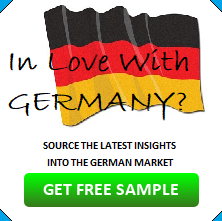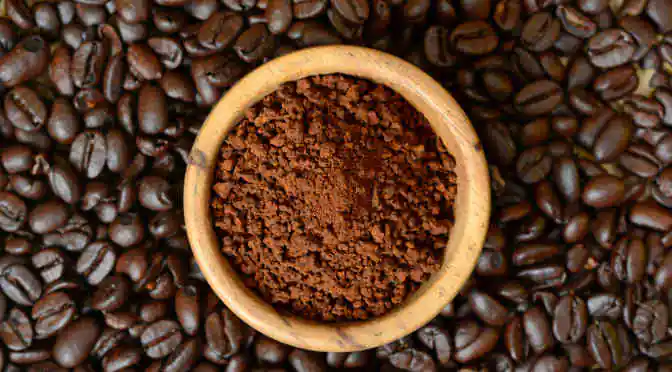‘Coffee and smoking are the last great addictions’ goes the popular quote, and nowhere else is this axiom put to better practice than in Germany. Judging by the various German coffee brands and the ever-incrementing numbers of coffee aficionados, this non-alcoholic beverage is indeed finding favor in the affluent European country that has traditionally been about the beers and alcoholic ales.
 In Germany, coffee is seen as a hot drink with an attitude, a perfect representation of the indomitable German spirit. Not surprisingly, Germany has emerged as the third-largest market for coffee in the world, behind the United States and Brazil. A noteworthy 86% of Germans drink coffee on a daily basis, with an average per-day intake of 1.43 cups. These numbers signify a mature and profitable market.
In Germany, coffee is seen as a hot drink with an attitude, a perfect representation of the indomitable German spirit. Not surprisingly, Germany has emerged as the third-largest market for coffee in the world, behind the United States and Brazil. A noteworthy 86% of Germans drink coffee on a daily basis, with an average per-day intake of 1.43 cups. These numbers signify a mature and profitable market.
Who’s drinking the coffee in Germany?
The influence of millennials and Gen-X, just as everywhere else, is visible in the German coffee landscape. Nearly 27% of the German population, comprising individuals in the 18- 29 age bracket, consider drinking coffee and procuring top-notch coffee machines to be lifestyle and status indicators. Consequently, most German coffee brands align their marketing to reinforce this notion.
Traditionally, Germany is famed for its beer, traditions like Oktoberfest and frequent contributions to the art of lager making. However, today, as much as 50% of all German coffee drinkers are ready to shell out extra money for the premium coffee experience. Specialty coffee houses are finding their niche and helping a generation of urban Germans discover the allure of coffee. The fact that Germany is an advanced economy with a fairly affluent population with high buying prowess is most definitely helping the coffee industry’s case in Germany.
Homegrown German coffee brands are up for a challenge
Big name German coffee brands like Tchibo, Eduscho, Dallmayr, Niederegger, Jacobs, Kraft Heinz, Segafredo, Strauss Group, Caffè Nero and Mondelez Deutschland are not just focused on bringing premium coffee to Germany, but also to other lucrative markets around the world. Another prominent form of coffee that has appealed massively to modern Germany is cold brew. It is a mega fad in most of Germany and is profitably marketed by such international players as Costa Coffee, McDonalds and Starbucks.
Competition is also heating up as the popularity of soft drinks is steadily decreasing and ready-to-drink (RTD) coffee is taking their place. The RTD space is powered by an alliance between Dunkin’ Donuts and Coca Cola, who have just started retailing a new brand of cold coffee across the former’s storefronts in Germany. Already a massive hit in other parts of the world, including the US, this strategic alliance may put forth many more innovative products and pose a real threat to homegrown German coffee brands. Unless, of course, the latter push back with some strategy and inventiveness of their own.
The answer may lie in understanding what modern German coffee enthusiasts are looking for and providing them with just that. As mentioned before, most Germans will readily pay extra for premium coffee and the unique experiences associated with it. German coffee brands can import universally acclaimed coffee varieties from such coffee producing countries as Guatemala, Ethiopia and Indonesia, and sell them to the discerning German public as part of an exotic selection of coffee products. Specialty outlets can be established to cater to this growing segment, while meeting the invasion of the foreign MNC outlets on their own terms.
In Summation: Germany’s love affair with coffee is in its nascent stage and the projected growth in the next five years should whet the appetite of the most unimaginative German coffee brands. Thankfully, a majority of them have woken up to the possibilities and are powering coffee’s glorious comeback in Deutschland.



